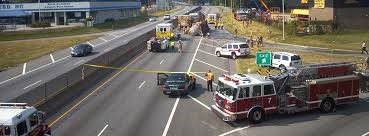Fall 2024 Incident Command (Self-Paced)
Event Date: 12/1/2024 - 12/31/2024
- 11:00 PM
Capacity:
Event Overview
*** Please send certificates to CLTAP@frontrange.edu ***
**Please contact (970) 204-8294 or CLTAP@frontrange.edu with any questions you may have**

Complete the following TWO FEMA courses to receive Roads Scholar II Safety credit!
IS-700.B: An Introduction to the National Incident Management System -
Course Description:
This course provides an overview of the National Incident Management System (NIMS). The National Incident Management System defines the comprehensive approach guiding the whole community - all levels of government, nongovernmental organizations (NGO), and the private sector - to work together seamlessly to prevent, protect against, mitigate, respond to, and recover from the effects of incidents. The course provides learners with a basic understanding of NIMS concepts, principles, and components.
Learning Objectives:
At the end of this course, students will be able to:
- Describe and identify the key concepts, principles, scope, and applicability underlying NIMS.
- Describe activities and methods for managing resources.
- Describe the NIMS Management Characteristics.
- Identify and describe Incident Command System (ICS) organizational structures.
- Explain Emergency Operations Center (EOC) functions, common models for staff organization, and activation levels.
- Explain the interconnectivity within the NIMS Management and Coordination structures: ICS, EOC, Joint Information System (JIS), and Multiagency Coordination Groups (MAC Groups).
- Identify and describe the characteristics of communications and information systems, effective communication, incident information, and communication standards and formats.
IS-800.D: National Response Framework, An Introduction -
Course Description:
The goal of the IS-0800.d, National Response Framework, An Introduction, is to provide guidance for the whole community. Within this broad audience, the National Response Framework focuses especially on those who are involved in delivering and applying the response core capabilities, including:
- Private sector partners
- Non-governmental organizations (NGOs)
- Government officials
- Community leaders
- Emergency management practitioners
- First responders
Learning Objectives:
By the end of this course, students will be able to:
- Describe the purpose, scope, organization, and underlying doctrine of the National Response Framework.
- Describe the roles and responsibilities of response partners.
- Describe core capabilities for response and actions required to deliver those capabilities.
- Describe coordinating structures and operational planning used to support emergency response.
- Describe how the stabilization of the seven Community Lifelines reduces threats to public health and safety, or economic security.
Roads Scholar II : Safety
This is a course in the Roads Scholar II course track Safety Focus Area. Click above for more program details.
Self-paced Courses for Colorado LTAP Credit
Registration for this course is required to receive Colorado LTAP credit. Cost is $0 for employees of government and non-government agency employees. In order to receive credit, Colorado LTAP must receive documentation of completion. Please submit to cltap@frontrange.edu .
Registration
| Non-government: Free | Register |
||
|
| |||
| Government: Free | Register |
||
|
| |||
